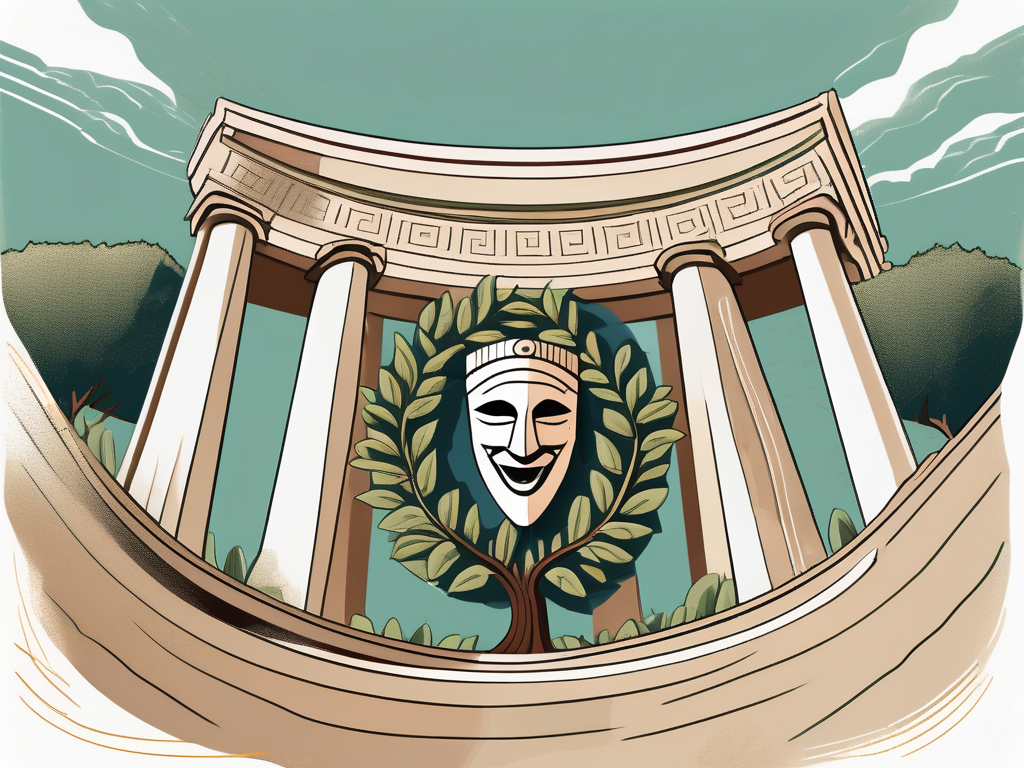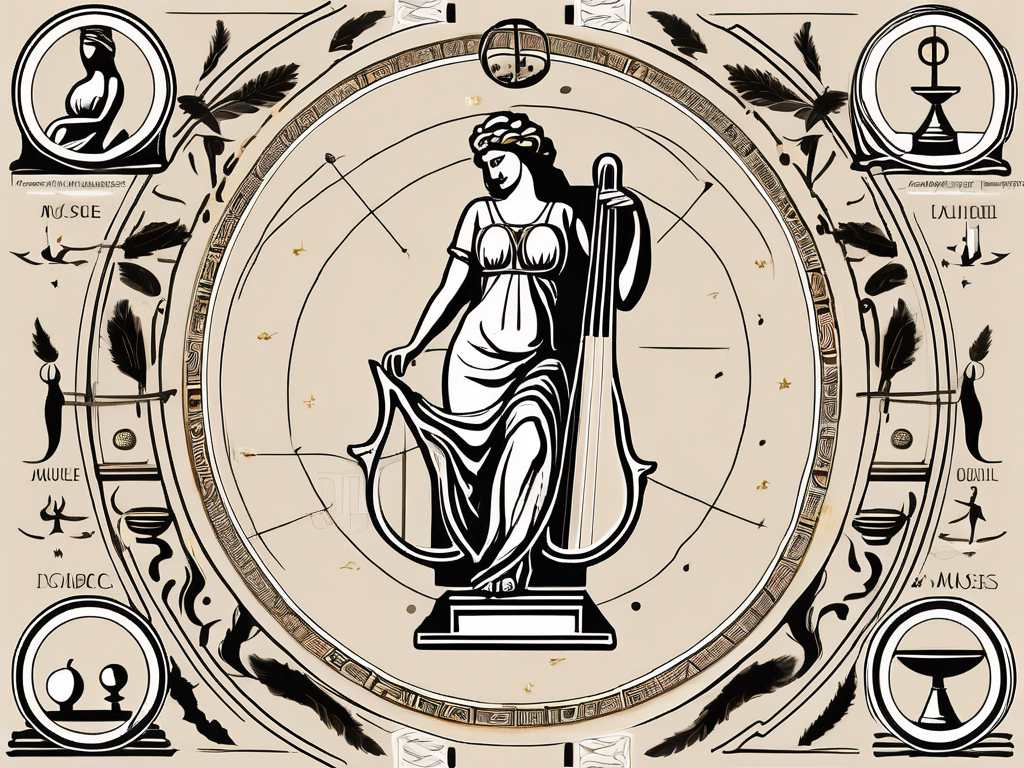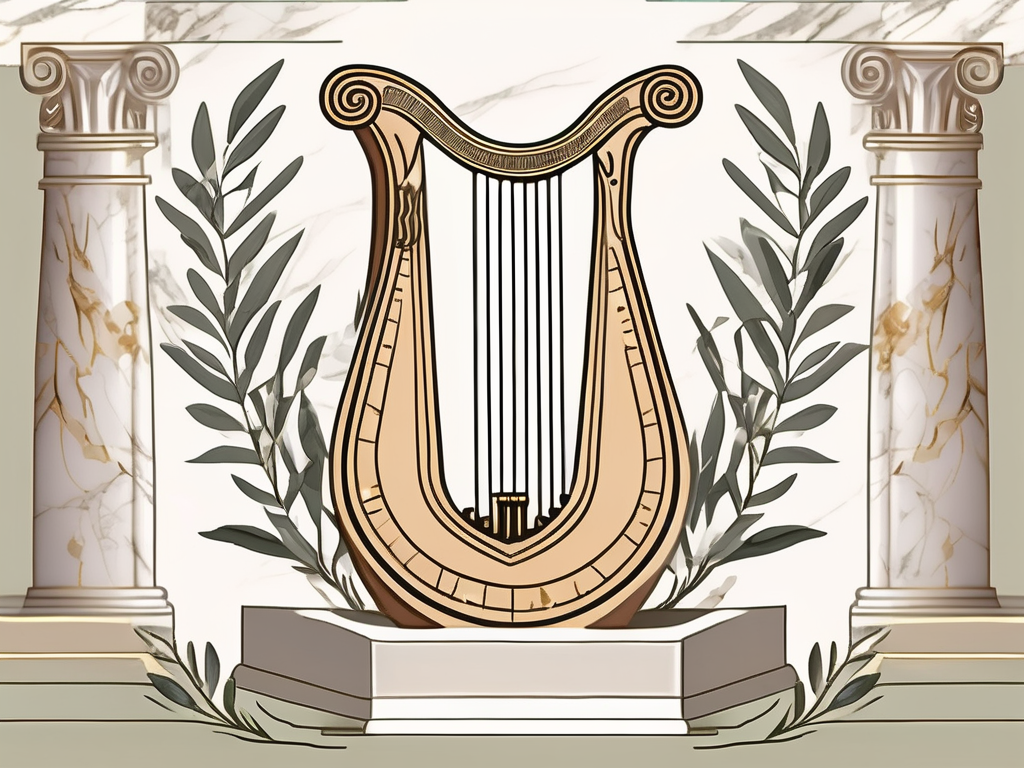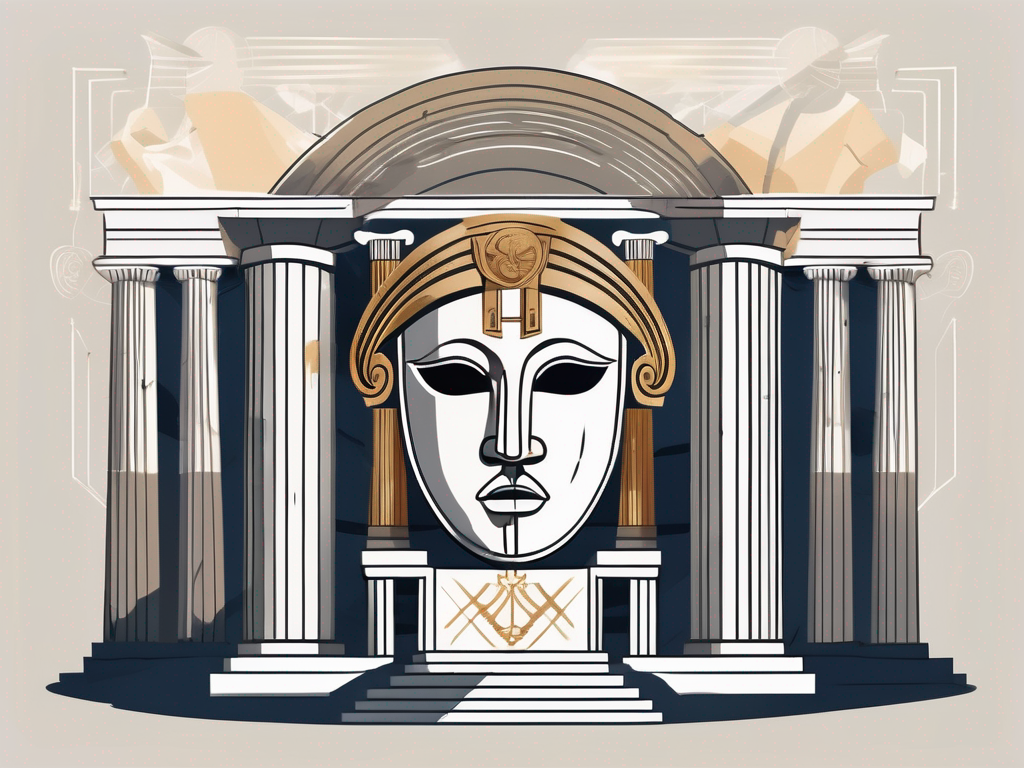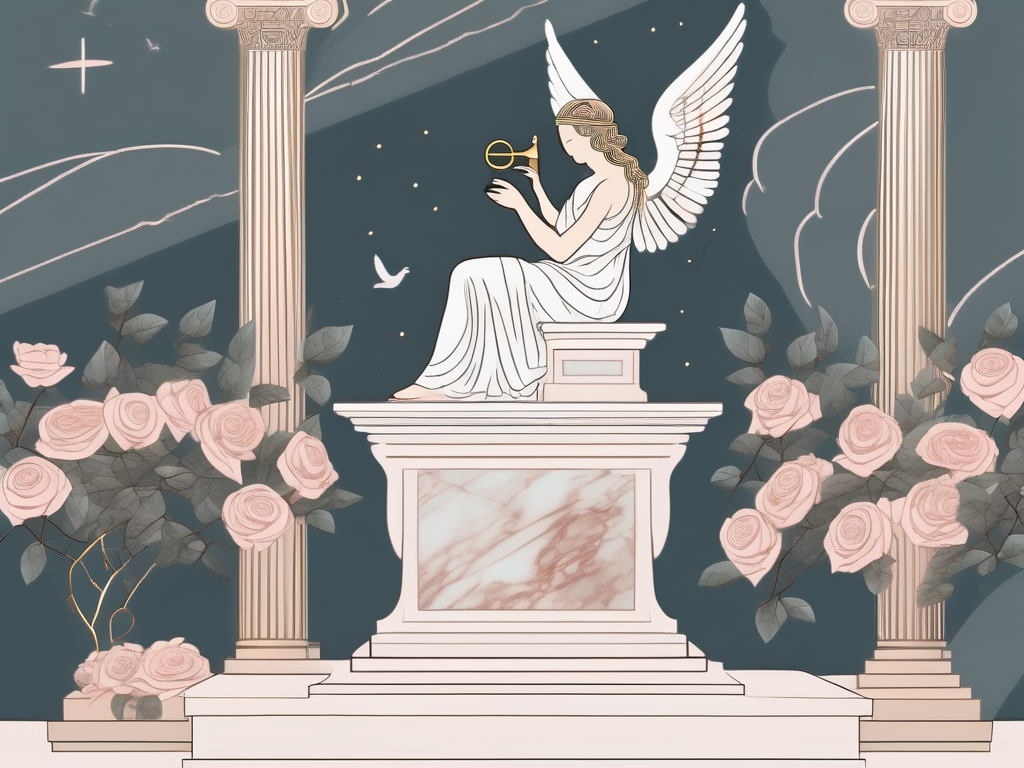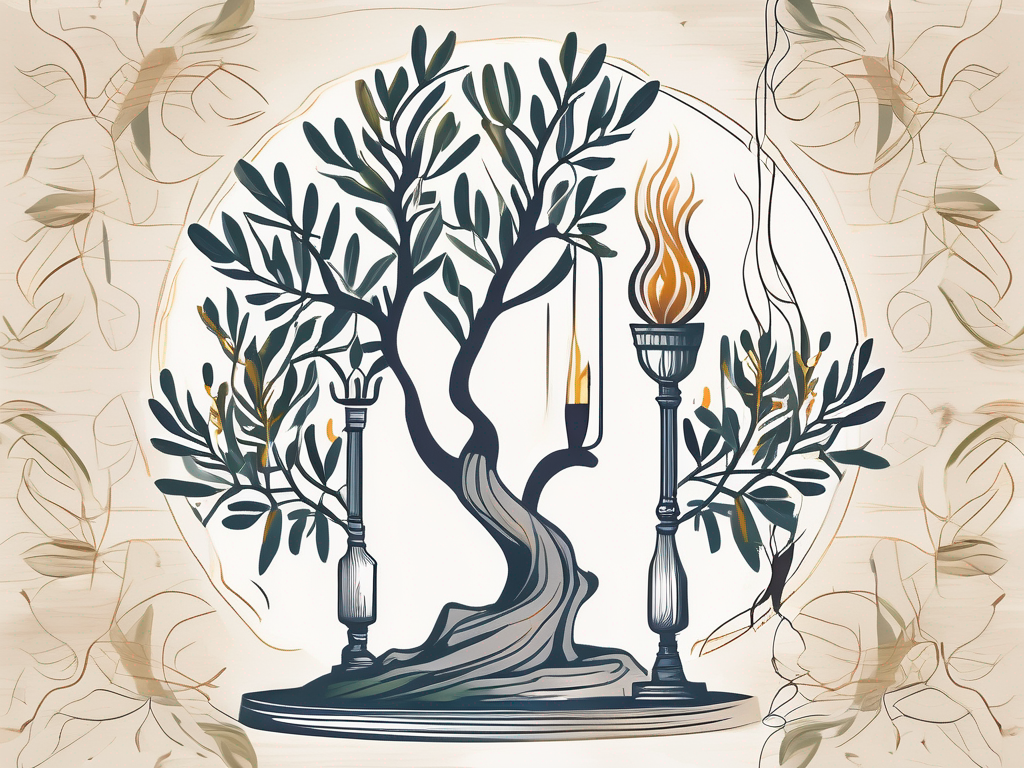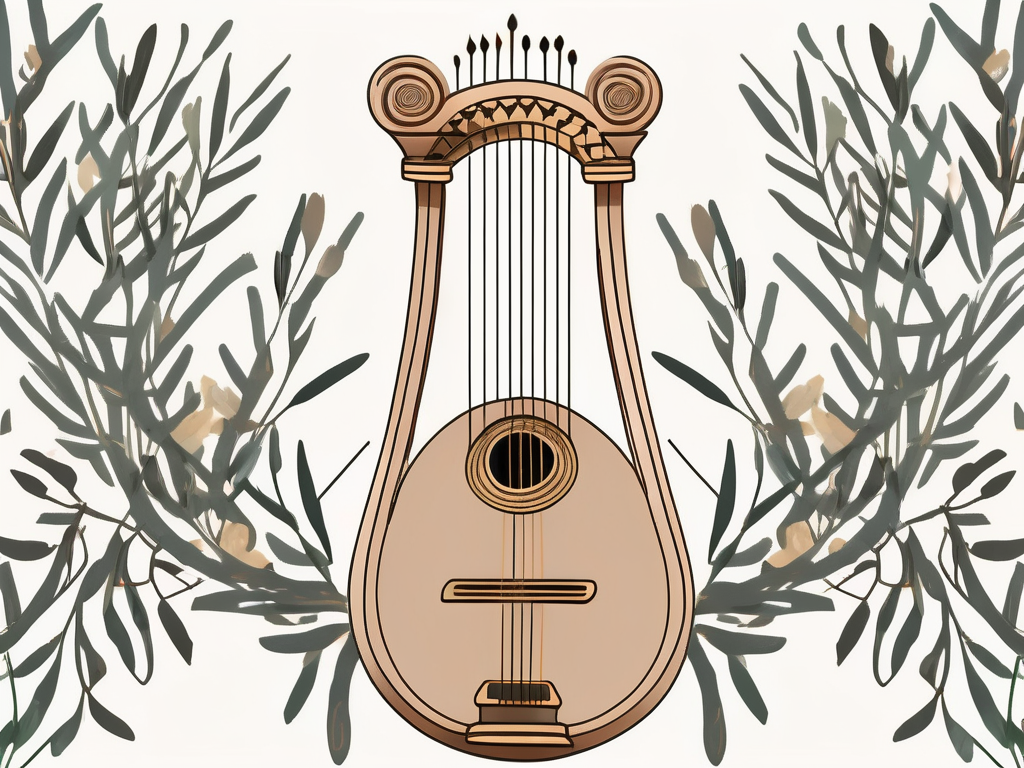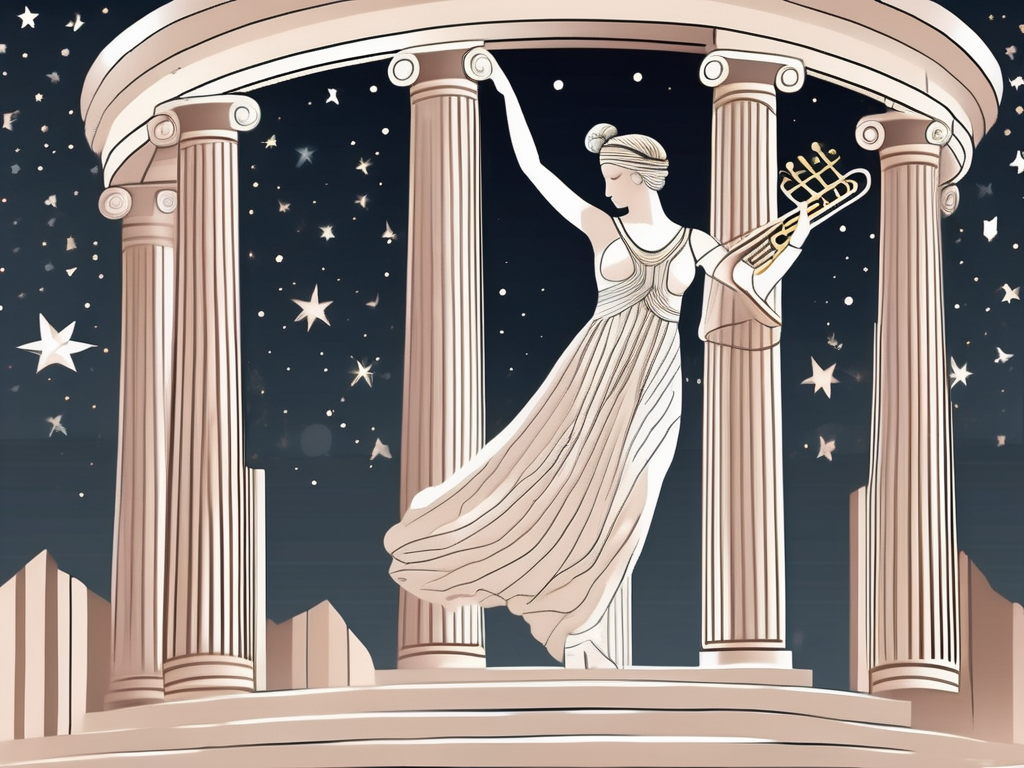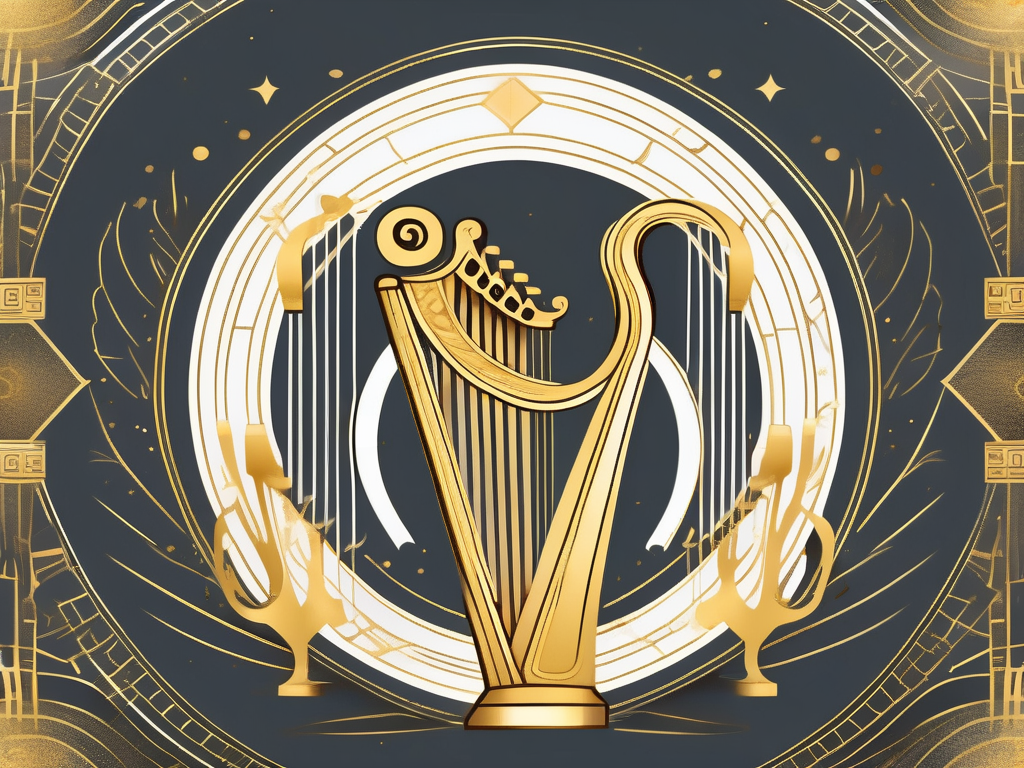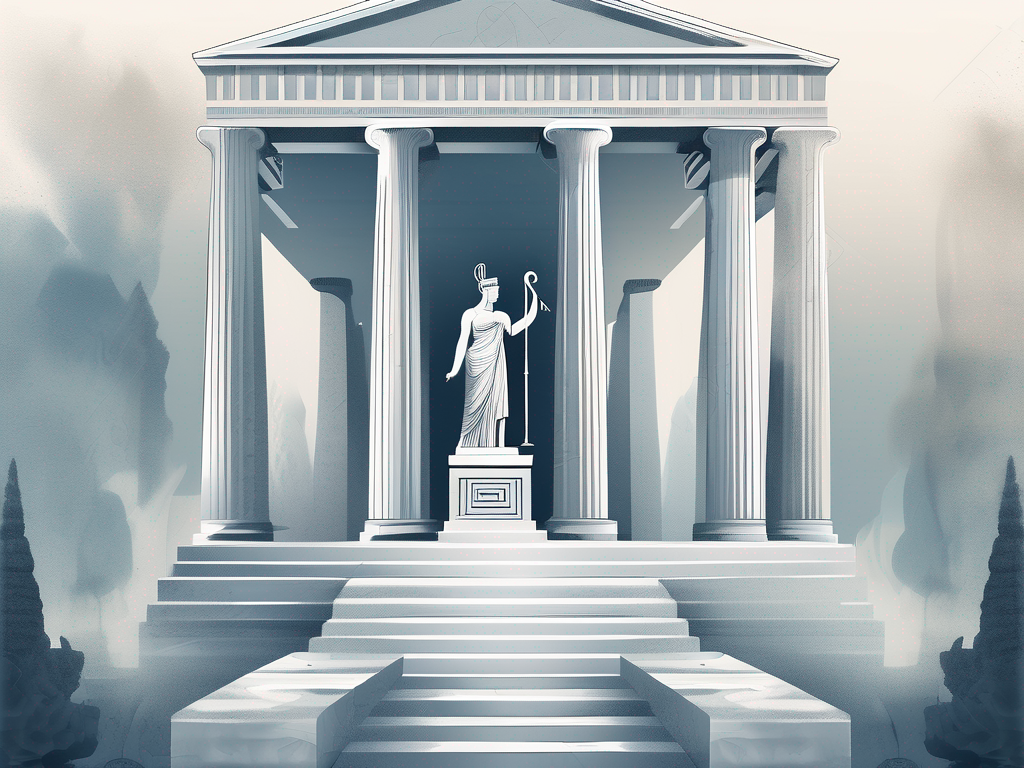In Greek mythology, the goddess Thalia holds a significant role as one of the nine muses. These muses are known for inspiring artists and scholars, and Thalia, in particular, is associated with comedy and idyllic poetry. Let’s delve deep into Thalia’s mythology, symbolism, and her influence on Greek culture and society.
Understanding the Role of Thalia in Greek Mythology
Thalia, the muse of comedy and idyllic poetry, was believed to provide inspiration to poets, playwrights, and musicians. She was one of the nine muses, daughters of Zeus and Mnemosyne. Each muse represented a different art form or area of knowledge, with Thalia focusing on comedic poetry and pastoral themes.
In ancient Greece, Thalia held a prominent position among the nine muses. Alongside her sisters, she played a vital role in nurturing the creative spirit of Greek artists. Thalia’s presence was regarded highly, standing alongside muses such as Calliope, the muse of epic poetry, and Erato, the muse of love poetry. Her ability to evoke laughter and joy through her comedic poetry brought balance to the group, creating a diverse tapestry of inspiration.
Thalia’s domain extended beyond pure comedy. She was also associated with idyllic poetry, which depicted idealized rural life and beautiful landscapes. Through her influence, poets would create vivid imagery of rolling meadows, rustic scenes, and the joyous laughter of festivals. Thalia’s poetic prowess allowed her to transport listeners to a world of tranquility and mirth, where they could momentarily escape the challenges of everyday life.
As the muse of comedy, Thalia was known to inspire playwrights in the creation of comedic works. Her influence could be seen in the satirical plays of Aristophanes, where she guided the playwright’s pen to create witty and humorous dialogues. Thalia’s comedic genius infused these plays with laughter, providing entertainment to the ancient Greek audiences and offering a critical lens through which societal issues could be examined.
Furthermore, Thalia’s association with idyllic poetry brought forth a sense of nostalgia for the simplicity and beauty of rural life. Poets who sought her inspiration would often weave tales of shepherds tending their flocks, nymphs dancing in sunlit groves, and the gentle melodies of flutes echoing through the hills. Through these idyllic poems, Thalia encouraged a connection to nature and a celebration of the harmonious relationship between humans and the natural world.
It is important to note that Thalia’s influence was not limited to poetry alone. She also inspired musicians, guiding their compositions to create melodies that would evoke laughter and joy. Musicians would often dedicate their performances to Thalia, seeking her blessing for a successful and entertaining show. Thalia’s presence in the realm of music ensured that laughter and mirth were not confined to the written word, but could also be experienced through the power of sound.
The Symbolism Attached to Thalia
Thalia’s symbolism is rich and profound. Her iconic symbols include the mask and the shepherd’s staff, both of which carry deep meaning.
Thalia, the Greek muse of comedy and idyllic poetry, is a figure steeped in symbolism. Her symbols, the mask and the shepherd’s staff, hold significant cultural and artistic significance.
The Mask: Unveiling the Theatrical Aspect of Comedy
The mask, one of Thalia’s iconic symbols, represents the theatrical aspect of comedy. In ancient Greek theater, actors would wear masks to portray different characters and emotions. These masks allowed performers to transform themselves, assuming various roles and personas. Thalia, as the muse of comedy, embodies the essence of this transformative power. Through the mask, she symbolizes the ability to explore different facets of human nature, to question societal norms, and to provide laughter and joy to audiences.
The Shepherd’s Staff: Guiding the Path of Idyllic Poetry
Another symbol associated with Thalia is the shepherd’s staff. This symbolizes her connection to idyllic poetry, which often explores themes of nature, rural life, and the simplicity of the countryside. The shepherd’s staff, traditionally used by shepherds to guide and protect their flocks, represents Thalia’s role as a guide and protector of nature and rural life. Through her poetry, she leads readers on a journey through lush landscapes, inviting them to appreciate the beauty and tranquility of the natural world.
Thalia’s Association with Fertility and Blooming
Thalia’s connection to the natural world goes beyond idyllic poetry. She was often associated with fertility and blooming, as her presence was believed to bring abundance to the land. In ancient Greece, agricultural communities held her in high regard, seeking her blessings during planting seasons and harvest festivals. Farmers and gardeners would invoke her name, hoping for a bountiful harvest and prosperous crops. Thalia’s association with fertility also extended to human procreation, with some believing that calling upon her could aid in fertility and childbirth.
Thalia’s symbolism encompasses not only the realms of art and creativity but also the interconnectedness of nature and human life. Through her symbols, the mask and the shepherd’s staff, she invites us to explore the multifaceted nature of comedy, the serenity of idyllic poetry, and the abundance and fertility that can be found in the natural world.
Thalia’s Influence on Ancient Greek Culture and Society
Thalia, the Greek muse of comedy and pastoral poetry, had a far-reaching impact on the cultural and social fabric of ancient Greece. Her influence extended beyond the realm of mythology, shaping festivals, celebrations, literature, and art.
Thalia’s Role in Greek Festivals and Celebrations
Greek festivals were vibrant and lively affairs, and Thalia’s presence was considered essential to their success. During these joyous celebrations, comedic plays and performances took center stage, bringing laughter and mirth to the attendees. Thalia, with her mischievous charm, was invoked to ensure the abundance of harvests and protect the community from misfortune. It was believed that her comedic influence could bring good fortune and ward off any ill omens that might threaten the festivities.
Thalia’s role in Greek festivals went beyond mere entertainment. She symbolized the importance of laughter and humor in fostering a sense of community and unity. The Greeks believed that laughter had the power to heal and bring people together, and Thalia embodied this belief. Her presence in these celebrations served as a reminder that amidst the challenges of life, finding joy and laughter was essential for the well-being of individuals and society as a whole.
The Impact of Thalia’s Myth on Greek Literature and Art
Thalia’s myth had a profound impact on Greek literature and art, leaving an indelible mark on the creative landscape of ancient Greece. Comedic plays, known as “comedies,” were performed in her honor, and playwrights such as Aristophanes became famous for their satirical and humorous works. Thalia’s influence can be seen in the enduring popularity of these plays, which continue to be studied and performed to this day.
Thalia’s influence extended beyond the stage and permeated other forms of artistic expression as well. Greek architecture, known for its grandeur and innovation, saw the construction of theaters specifically designed to cater to comedic performances. These theaters, with their acoustics and seating arrangements, were meticulously crafted to enhance the comedic experience for the audience. Thalia’s spirit seemed to inhabit these spaces, infusing them with an atmosphere of laughter and amusement.
Furthermore, Thalia’s influence on Greek literature and art was not limited to comedy alone. As the muse of pastoral poetry, she inspired poets to explore themes of nature, love, and the simpler joys of life. Through her influence, Greek poets crafted verses that celebrated the beauty of the natural world and the idyllic countryside, providing a counterbalance to the tragedies and epics that dominated the literary landscape.
In conclusion, Thalia’s influence on ancient Greek culture and society was vast and multifaceted. From her role in festivals and celebrations to her impact on literature and art, she left an enduring legacy that continues to shape our understanding of comedy, joy, and the importance of laughter in human life.
Modern Interpretations of Thalia
Thalia, the Greek goddess of comedy and idyllic poetry, continues to inspire and captivate audiences across generations. Her role as one of the nine muses and her rich symbolism within Greek culture ensure that her legacy lives on. Through her influences on festivals, literature, and contemporary interpretations, Thalia continues to remind us of the power of laughter, nature’s abundance, and the importance of artistic expression in all its forms.
Thalia in Contemporary Literature and Media
Authors and screenwriters often draw inspiration from Thalia’s mythology, incorporating her themes and symbols into their works. Whether it is crafting comedic characters or showcasing idyllic scenes, Thalia’s influence brings an added layer of depth and connection to the past.
One notable example of Thalia’s influence in contemporary literature is the character of Puck in William Shakespeare’s play, “A Midsummer Night’s Dream.” Puck, a mischievous and comedic sprite, embodies the spirit of Thalia, bringing laughter and chaos to the story. Similarly, in modern media, Thalia’s symbolism can be seen in the character of Deadpool, a humorous and irreverent superhero known for his witty banter and comedic antics.
Thalia’s presence in contemporary literature and media not only entertains audiences but also serves as a reminder of the enduring power of comedy and its ability to connect us to our shared human experiences.
Thalia’s Symbolism in Modern Psychology and Philosophy
Thalia’s symbolism also resonates within the realms of psychology and philosophy. Her presence is often associated with the healing power of laughter, with some theories suggesting that humor can alleviate emotional distress and promote mental wellbeing.
In the field of psychology, the concept of “laughter therapy” has gained popularity, with practitioners utilizing humor and laughter to help individuals cope with stress, anxiety, and depression. The therapeutic benefits of laughter align with Thalia’s role as a muse of comedy, emphasizing the importance of finding joy and levity in life.
Furthermore, Thalia’s connection to nature and rural life serves as a reminder of the importance of preserving the environment and living harmoniously with nature. In modern philosophy, Thalia’s symbolism is often invoked to emphasize the need for ecological awareness and sustainable practices. Her representation of idyllic poetry and the beauty of the natural world inspires individuals to appreciate and protect the Earth’s resources.
By exploring Thalia’s symbolism in modern psychology and philosophy, we gain a deeper understanding of the profound impact she continues to have on our collective consciousness.
In conclusion, Thalia’s influence extends far beyond ancient Greek mythology. Her symbolism continues to captivate modern audiences, finding its way into contemporary literature, media, psychology, and philosophy. Whether through the creation of comedic characters, the therapeutic power of laughter, or the reminder of our connection to nature, Thalia’s legacy remains relevant and inspiring. As we continue to explore and interpret her mythology, we uncover new layers of meaning and appreciation for the enduring influence of this beloved muse.
